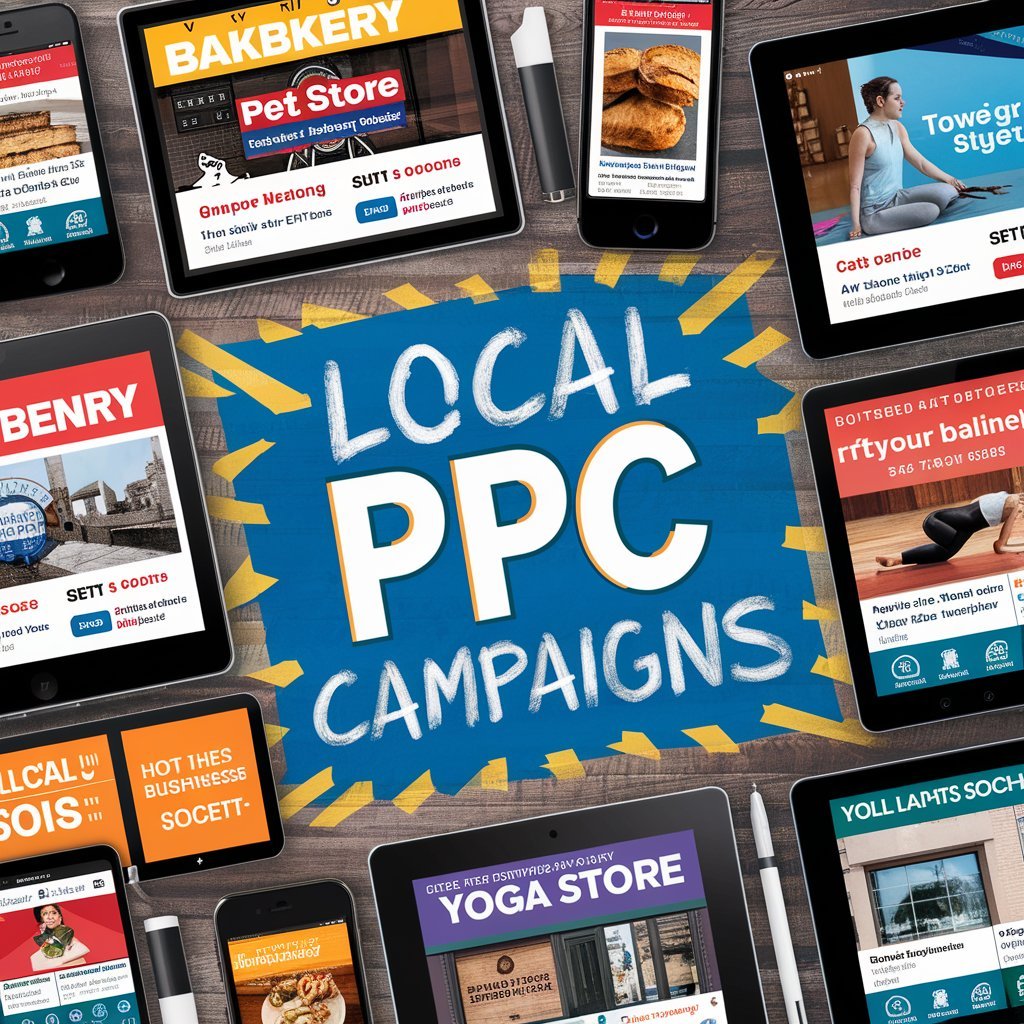In the digital marketing landscape, local PPC (Pay-Per-Click) campaigns are essential for businesses aiming to connect with their community. By leveraging targeted ads, businesses can effectively reach potential customers in their geographic area, driving traffic and increasing sales. This article will explore the fundamentals of local PPC campaigns, including strategies to optimize your efforts and maximize your return on investment.
What is Local PPC?
Local PPC campaigns focus on advertising to users based on their geographic location. This means that your ads will only be shown to people searching for products or services within a specific area. By utilizing local targeting, businesses can ensure that their marketing efforts are reaching the most relevant audience, ultimately leading to higher conversion rates. Local PPC is particularly effective for brick-and-mortar businesses, as it drives foot traffic and increases visibility in the local market. By using platforms like Google Ads, businesses can create ads that appear in search results, Google Maps, and various other online spaces.
Why Local PPC Matters
- Precision Targeting: Local PPC allows businesses to target specific neighborhoods, cities, or regions, ensuring that marketing efforts are focused on the most relevant audience.
- Increased Visibility: By appearing at the top of search results, local PPC ads enhance brand visibility and recognition among potential customers.
- Cost-Effectiveness: Local PPC campaigns can be more cost-effective than traditional advertising methods, as they allow businesses to set budgets and only pay for actual clicks.
- Enhanced Conversion Rates: By targeting users actively searching for local services, businesses can achieve higher conversion rates compared to broader advertising strategies.
7 Tips for Effective Local PPC Campaigns
1. Define Your Goals
Before launching a local PPC campaign, it’s crucial to define your objectives. Are you aiming to increase website traffic, generate leads, or drive foot traffic to your store? Clear goals will guide your campaign strategy and help measure success.
2. Conduct Thorough Keyword Research
Keyword research is the backbone of any successful PPC campaign. Identify relevant local keywords that potential customers might use when searching for your products or services. Utilize tools like Google Keyword Planner and SEMrush to find high-performing keywords. Focus on long-tail keywords, as they often have lower competition and higher conversion potential.
3. Create Geographically Targeted Ad Groups
Organize your keywords into ad groups based on geographic relevance. This allows you to create highly targeted ads that resonate with specific local audiences. For instance, if you run a bakery in Denver, create ad groups that include keywords like “Denver bakery” or “best pastries in Denver.”
4. Write Compelling Ad Copy
Your ad copy should be engaging and tailored to your local audience. Highlight unique selling points and incorporate local phrases or landmarks to create a connection with potential customers. For example, “Visit our award-winning bakery in downtown Denver for fresh pastries daily!” This approach not only grabs attention but also builds trust with local consumers.
5. Utilize Location Extensions
Location extensions allow you to display your business address, phone number, and a map marker alongside your ads. This feature is particularly beneficial for local PPC campaigns, as it provides potential customers with essential information at a glance. Ensure that your business information is accurate and up-to-date to enhance credibility.
6. Monitor and Optimize Your Campaigns
Regularly analyze your campaign performance to identify areas for improvement. Track metrics such as click-through rates (CTR), conversion rates, and return on ad spend (ROAS). Use this data to optimize your campaigns, adjusting bids, ad copy, and targeting as needed to maximize results.
7. Leverage A/B Testing
A/B testing involves creating multiple versions of your ads to determine which performs best. Test different headlines, ad copy, and calls to action to see what resonates most with your audience. This iterative approach allows you to refine your campaigns and improve overall effectiveness.
The Role of an Ecommerce PPC Agency
If managing local PPC campaigns seems overwhelming, consider partnering with an ecommerce PPC agency. These specialists have the expertise and resources to create and manage effective campaigns tailored to your business needs. They can help optimize your ads, conduct thorough keyword research, and provide valuable insights based on industry trends.
Conclusion
Local PPC campaigns are a powerful tool for businesses looking to connect with their community and drive sales. By implementing effective strategies such as defining clear goals, conducting thorough keyword research, and optimizing ad copy, you can maximize your local PPC efforts.Whether you choose to manage your campaigns in-house or partner with an ecommerce PPC agency, the right approach will help you reach your target audience effectively and achieve your business objectives.



More Stories
How to Use GMB Insights to Improve Results
Want to Attract Followers on Instagram? Check Out 7 Tips That Work!
A Guide to Building a Strong Online Presence